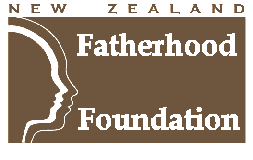Family Resilience and Good Child Outcomes:
A Review of the Literature
by Ariel Kalil (1998)
Read Family Resilience and Good Child Outcomes here
This report is the third volume in the Ministry of Social Development’s new research series Raising Children in New Zealand. The series was established as a means of disseminating the results from the Ministry’s “Family Dynamics/Family Effectiveness” work programme, which has been funded out of the Cross-departmental Research Pool administered by the Ministry of Research, Science and Technology. This work programme has been primarily aimed at the goal of increasing understanding of factors that contribute to good children’s outcomes, with a particular focus on family characteristics and processes that operate within families.
The report – commissioned from Ariel Kalil of the University of Chicago – is focused on the issue of family resilience. The central question in this field of enquiry is why it is that some families manage to cope well when facing stress or confronted with a crisis, while other families in similar circumstances fail to do so. The report draws on a wide range of literature to examine how the concept of family resilience has been defined and applied by scholars in this field and to document the research findings about how family resilience manifests itself.
A few preliminary extracts/observations:
"In particular, non-resident fathers and other father figures have an important role to play in promoting the development of children in single-parent families" (p.5)
"Social capital can exist within the family (through parents' social investment in their children) and outside the family (through families' links to the community).' p.17 (an important acknowledgement of within-family social capital - debate in NZ commonly ignores this)
"The research has shown that parenting behaviours mediate much of the impact of economic hardship on child development (Dodge et al. 1994, Sampson and Laub 1994)." [plus important discussion]
"Single-parent family structure is recognised as a significant risk factor for parental well-being and children's adjustment." p.43 [plus important discussion and details]
McLanahan and Sandefur 1994 are mentioned on p.44 - Steve Maharey made a claim of their finding on poverty as importnat for single parent households. This report discusses this as only one possible aspect.
"Non-resident Fathers and Social Fathers as Protective Factors" p.44
"The most recent studies have looked not only at informal economic contributions to the support of the child but, more importantly, at the socialisation practices of absent fathers and at the quality of relationships between absent fathers and their children." p.44 [F&C emphasis]
"...findings suggest the need to go beyond simplistic notions of father involvement and to increase the focus on ways that families operate collectively to support positive caregiving by both parents." p.45
Also there is discussion on "social fathers" on pp.46-7, including: "With respect to children's social adjustment, a different pattern was found. Where the father figure was the mother's romantic partner, children had significantly lower levels of emotional adjustment. The cross-sectional nature of the data did not allow Jayakody and Kalil to discern the direction of effects. On the one hand, mothers who have less well-adjusted children may be more likely to introduce a male role model in the hope of stabilising or improving the children's behaviour, thinking that perhaps this person would fill the absent father's role. On the other hand, when mothers have male partners who act like fathers or when mothers wishfully nominate their partners as father figures, this may cause tension in family dynamics and lead to behaviour problems or poor adjustment among the children. Male partners might also compete with children for the mother's time and attention."
